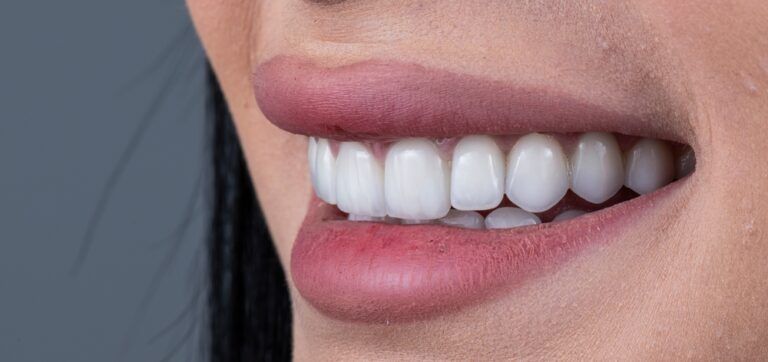Dental crowns are an investment in both the health and appearance of your smile. They are designed to protect weakened teeth, restore their function, and enhance their aesthetic appeal. However, crowned teeth still require specific care to ensure they stay in good condition and provide long-lasting benefits. Dr. Jonathan McCartney of McCartney Dental in North Port, FL, shares essential care tips for keeping your crowned teeth healthy and strong.
Understanding Dental Crowns
A dental crown, or “cap,” is a protective cover custom-made to fit over a damaged or weakened tooth. Crowns can be crafted from various materials, including porcelain, ceramic, metal, or a combination of these, depending on the tooth’s location and the patient’s needs. While dental crowns are highly durable, they aren’t immune to damage. With the right care, however, you can maintain your crown’s strength and appearance for many years.
Why Crown Care Matters
Proper care of crowned teeth is crucial for several reasons:
- Preventing Decay: Although crowns cover most of the tooth, the area around the base remains vulnerable to plaque and bacteria, which can lead to decay.
- Maintaining Fit and Stability: A loose crown can lead to discomfort, increase the risk of decay, and may eventually fall off if not cared for properly.
- Prolonging the Crown’s Lifespan: Crowns can last a decade or longer with good care, saving you from additional procedures and costs.
Daily Care Tips for Crowned Teeth
- Brush Twice a Day
Brushing twice daily helps remove plaque buildup around the crown and the gumline. Use a soft-bristled toothbrush to clean your crowned tooth gently, as a hard brush could wear down the crown material. Pay extra attention to the gum area near the crown to ensure thorough cleaning. - Use Non-Abrasive Toothpaste
Choose a toothpaste that is gentle and non-abrasive to avoid wearing down the crown’s surface. Certain whitening toothpastes may contain abrasive ingredients that can scratch porcelain or ceramic crowns, making them susceptible to staining over time. - Floss Daily
Flossing is essential to protect crowned teeth from decay, especially at the gumline where plaque tends to accumulate. Use a gentle sawing motion to floss around the crowned tooth, avoiding pulling or snapping the floss, which can dislodge or loosen the crown. If traditional flossing is difficult, a water flosser can be a good alternative. - Use Antibacterial Mouthwash
An antibacterial mouthwash can help reduce plaque and bacteria in hard-to-reach areas. Rinsing with mouthwash keeps the mouth cleaner overall and protects the gumline around the crown, where bacteria are most likely to accumulate.
Foods to Enjoy and Avoid with Crowns
A balanced diet contributes to oral health, but certain foods can be more favorable for crowned teeth than others. Here’s what to keep in mind:
- Choose Soft Foods When Possible
Soft fruits, cooked vegetables, and lean proteins are gentle on crowns and the surrounding teeth. These foods require less chewing effort and reduce the chance of damaging or loosening a crown. - Avoid Sticky or Chewy Foods
Sticky foods like caramel, taffy, and gum can adhere to the crown and potentially pull it loose. They also tend to get trapped around the gumline, increasing the risk of decay near the crown. - Limit Hard Foods
Hard foods such as ice, popcorn kernels, and hard candies can chip or crack crowns. Even nuts, which are otherwise nutritious, should be eaten with care. Consider cutting them into smaller pieces to avoid putting excessive pressure on your crown. - Stay Hydrated
Drinking water throughout the day helps wash away food particles and bacteria, maintaining a cleaner environment around your crown. Water also keeps your mouth hydrated, which aids in saliva production, a natural defense against decay.
Protecting Your Crowns from Damage
Crowns are strong, but they’re not indestructible. Certain habits can damage crowns over time, so it’s essential to be mindful of the following:
- Avoid Using Your Teeth as Tools
Using your teeth to open packages, bite nails, or tear off tags can damage both crowns and natural teeth. These habits place excessive pressure on the crowns, leading to chips or fractures. - Wear a Nightguard if You Grind Your Teeth
Teeth grinding, or bruxism, can wear down crowns prematurely. A nightguard acts as a cushion between your upper and lower teeth, reducing the pressure on crowns. If you grind your teeth, Dr. McCartney can fit you with a custom nightguard for added protection. - Regular Dental Check-Ups
Routine check-ups allow Dr. McCartney to monitor the condition of your crown and identify any early signs of wear, decay, or misalignment. During these visits, professional cleanings remove plaque and tartar that regular brushing and flossing may miss, keeping your crowned teeth in optimal shape.
Signs That Your Crown Needs Attention
Even with excellent care, crowns may need adjustments or replacement over time. If you notice any of the following issues, schedule an appointment with Dr. McCartney:
- Sensitivity: Sensitivity around the crowned tooth, especially to hot or cold foods, can indicate an issue with the underlying tooth structure.
- Pain or Discomfort When Chewing: Pain when chewing could signal a problem with the crown’s fit or indicate underlying decay.
- Looseness: If your crown feels loose, it may need to be re-cemented or replaced. A loose crown can trap food particles and bacteria, leading to decay.
- Gum Irritation: Red, swollen, or bleeding gums around the crown may indicate gum disease or an ill-fitting crown.
Addressing Problems Early
Prompt attention to minor issues can save your crown and avoid further dental work. If you notice any changes, discomfort, or visible damage to your crown, it’s essential to visit Dr. McCartney for an evaluation. Addressing these concerns early can prevent them from escalating into more extensive (and costly) procedures.
Long-Term Care for Crowned Teeth
Once you’ve established a consistent routine for caring for your crown, maintaining your crowned teeth becomes second nature. Here are a few additional long-term tips to keep in mind:
- Consider Additional Fluoride Treatments
Fluoride treatments help strengthen the enamel on natural teeth and can also benefit crowned teeth by reducing the risk of decay near the crown. Fluoride mouth rinses are available over the counter, and professional fluoride treatments are also an option. - Mind Your Oral Health Routine
Make brushing, flossing, and rinsing daily habits. Consistent oral hygiene is the foundation for keeping crowns and natural teeth in good condition. - Be Mindful of Aging Crowns
Crowns don’t last forever. Over time, they can wear down, and their fit may shift. Staying vigilant about routine check-ups allows Dr. McCartney to assess the condition of aging crowns and recommend replacements when necessary to maintain oral health.
The Path to Long-Lasting Dental Health
Taking care of crowned teeth involves a combination of good daily habits, mindful eating, and routine dental care. By following these essential care tips, you can extend the life of your crowns and keep your smile looking and feeling its best. At McCartney Dental in North Port, FL, Dr. Jonathan McCartney and his team are here to help you with personalized guidance and professional care to maintain the health and longevity of your crowned teeth.
Sources:
- Dumfahrt, H., & Schäffer, H. (2000). Porcelain laminate veneers: A retrospective evaluation after 1 to 10 years of service. International Journal of Prosthodontics.
- Cheung, G. S. P. (2005). A review of the factors influencing the survival of root canal-treated teeth. International Endodontic Journal.
- Goodacre, C. J., Bernal, G., & Rungcharassaeng, K. (2003). Clinical complications in fixed prosthodontics. Journal of Prosthetic Dentistry.


